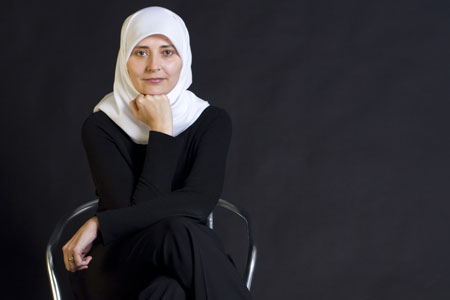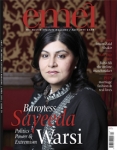
Life's Journey to God
Issue 79 April 2011
A massive earthquake has hit the northeast of Japan, triggering a tsunami that is threatening to extend across the Pacific as I write. My brother, his daughter and his wife all live in Japan. He described how the buildings in the capital, 250 miles from the epicentre, were swaying. Cities in Japan are built to withstand earthquakes and cyclones. When I visited in my youth, I can remember the casualness with which people accepted the regular earthquakes. Yet, as events unfold, my brother is now describing this as a national disaster.
This earthquake brings the number of disasters in developed nations to three within as many months, following the floods in Australia, and the earthquake in New Zealand. We tend to associate such catastrophes with poorer nations – Haiti, Pakistan, Bangladesh, and as such they are often removed from the fullness of our consciousness. They are events which happen to others in far off places. We are mournful, but in a way that is what we expect will happen to poor people; that is their lot in life, after all.
When such catastrophes befall countries we do business with, which make our cars and games consoles, which rear our lambs, and create our afternoon soap operas, there is a sense of confusion. Like a child dying before their parent, there is something out of place in the natural order of things.
In reality, this is all nonsense. We are all vulnerable to disaster at any moment; but we prefer to live in the illusion of our invincibility. Like Neo in the film Matrix, a dream world of order and control confines our rationality, because to explore any alternative is almost too much for us to tolerate. Or is it? Surely it is better to recognise, and indeed respect our vulnerability. Surely it is better to sidestep the propaganda of our inner mind which we have constructed to stop ourselves from going crazy from fear. Surely, it is better, as Morpheus says to Neo, “Let it all go, Neo. Fear, doubt, and disbelief. Free your mind.”
Faith for me is always about freedom. Freedom to explore the inner workings of my own soul. Freedom to examine my relationship with my creator. Freedom from fear. This latter emotion will end our efforts long before we even try them. Fear is the inner whispering that actually hinders our ultimate advancement. It manifests itself as an impasse, a routine from which we are unable to break. We construct patterns of guilt, embarrassment, vulnerability, self-doubt and fear of loss within our own world. However, the Qur’an reminds us, “No calamity can ever befall the earth and neither your own selves, unless it be laid down in Our decree before We bring it into being: verily, all this is easy for God.” (57:22)
We have to accept our weakness in order to be truly powerful. Surrender ourselves in order to triumph. Let go in order to have. This is counter intuitive, for our inner self is demanding control, yet when we hand over control to The Powerful, we are empowered. Such is the liberation of faith.
All of this is of course hard to actualise. The daily grind of our lives crashes in on us like a destructive wave. I find myself exhausted and apprehensive. This is my weakness of faith. I should more fully accept that God is in control, He has got it covered, He is in charge of my life in this world as well as the Hereafter.
Coming to terms with our diverse situations in our lives is the challenge. To experience joy within pain, to be at ease with our ‘dis-ease’. Belief in God provides us with a spiritual energy and certainty that allows us to bear life’s difficulties, to discard our anxiety and to have certainty despite our defencelessness. The Qur’an is forthright when it describes those who believe any good granted them is their rightful due, whilst any test is received with a feeling that God has disgraced them (89:15-16). We should know firmly that “Most certainly shall We try you by means of danger, and hunger, and loss of worldly goods, of lives and of labour’s fruits. But give glad tidings unto those who are patient in adversity who, when calamity befalls them, say, ‘Verily, unto God do we belong and, verily, unto Him we shall return.’ It is they upon whom their Sustainer’s blessings and grace are bestowed, and it is they, they who are on the right path!” (2:155-157)
There is peace and satisfaction to be found in the remembrance of God, who should be praised at all times. He hears our call, and it is Him that we will return to when this journey comes to an end.
Click here to read more of Sarah's editorials
Bookmark this |
|
Add to DIGG |
|
Add to del.icio.us |
|
Stumble this |
|
Share on Facebook |
|
Share this |
|
Send to a Friend |
|
Link to this |
|
Printer Friendly |
|
Print in plain text |
|


Comments
2 Comments
1
Impey
12 Apr 11, 22:32
Firstly, you seem to be saying in your first Qu'ran quote that
God more or less planned the earthquake? Secondly, life like
the world itself is based on uncertainty and although I have
faith I think God keeps us on the edge of certainty, that way
we are always ready to hear what he might be saying,
certainty does the opposite, it closes the mind?
2
Adil
2 Apr 11, 10:41
Nice editorial and another fine issue msA :)